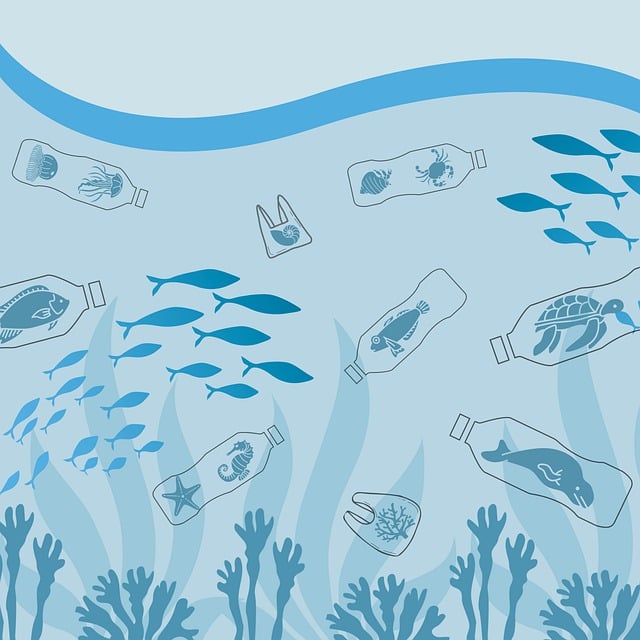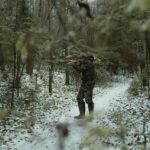In the vast realms of outdoor activities, responsible fishing and hunting stand out as time-honored traditions that connect humans with nature. As enthusiasts embark on these adventures, the concept of ethical harvesting becomes paramount. In this article, we delve into the essence of responsible fishing and hunting, exploring the ethical dimensions that guide the conscientious angler and hunter.
Understanding Ethical Harvesting
Respecting Wildlife
In the pursuit of the catch or the perfect shot, it’s crucial to recognize the delicate balance of ecosystems. Ethical harvesting begins with respect for wildlife—acknowledging their role in maintaining ecological equilibrium. This perspective is not just about fulfilling a personal quest but ensuring the sustained health of animal populations. Respecting wildlife is a fundamental aspect of responsible outdoor activities. Whether you’re an angler, hunter, hiker, or nature enthusiast, understanding how to interact with the fauna around you is crucial. Here are ten ways to ensure you’re respecting wildlife during your outdoor adventures:
1. Observe from a Distance
Maintain a respectful distance from wildlife to avoid causing stress or disturbance. Use binoculars or a zoom lens to appreciate their natural behaviors without encroaching on their space.
2. Do Not Feed Wildlife
Feeding wild animals can disrupt their natural diet, lead to dependency on humans, and even pose health risks. Let them forage and hunt for food on their own to maintain their natural instincts.
3. Stay on Designated Trails
Stick to established trails to minimize habitat disturbance. Straying off paths can trample vegetation, disrupt nests, and disturb the homes of various creatures.
4. Minimize Noise Pollution
Keep noise levels to a minimum. Wildlife, especially those with acute hearing, can be highly sensitive to loud sounds. Silence your devices and embrace the tranquility of nature.
5. Avoid Flash Photography
Bright flashes from cameras can startle and stress wildlife, especially nocturnal creatures. Whenever possible, use ambient lighting or natural sunlight to capture moments without causing harm.
6. Dispose of Trash Properly
Litter not only harms the environment but can also pose threats to wildlife. Dispose of your trash responsibly, and if you come across litter left by others, consider picking it up to protect the habitat.
7. Respect Nesting and Breeding Seasons
Be aware of nesting and breeding seasons for birds and other wildlife. During these crucial times, disturbances can have severe consequences for the survival of offspring. Keep a safe distance and avoid disturbing nesting sites.
8. Educate Others
Spread awareness about wildlife conservation and the importance of respectful behavior. Share your knowledge with fellow outdoor enthusiasts, fostering a collective responsibility for the well-being of the natural world.
9. Control Pets
If you bring pets along, ensure they are on leashes and under control. Unrestrained pets can chase or disturb wildlife, disrupt ecosystems, and potentially pose a threat to both domestic and wild animals.
10. Participate in Conservation Initiatives
Take an active role in wildlife conservation efforts. Support and engage in programs that aim to protect and preserve natural habitats, ensuring a sustainable environment for both wildlife and future generations.
Respecting wildlife is not just an ethical choice; it’s a responsibility we all share as stewards of the outdoors. By incorporating these practices into our outdoor adventures, we contribute to the well-being of the diverse and intricate ecosystems that make our natural world so extraordinary.
Balancing Act
Sustainability lies at the heart of ethical harvesting. It entails taking only what is necessary, respecting local regulations and guidelines. By avoiding over-exploitation, anglers and hunters contribute to the preservation of biodiversity, fostering a healthier and more resilient environment.
The Ripple Effect
Ethical harvesting extends beyond the immediate goal. It contemplates the broader impact on the ecosystem. Every action has a ripple effect, and ethical hunters and anglers consider the consequences of their activities on other species, habitats, and the overall ecosystem.
Responsible Fishing
Gear and Techniques
Responsible fishing involves choosing the right gear and techniques that minimize the impact on non-target species. Selective harvesting is an art in itself, requiring a deep understanding of aquatic ecosystems and the behavior of various fish species.
Catch and Release
For many anglers, the thrill lies not just in the catch but in the release. Catch and release practices contribute to conservation efforts, allowing fish populations to thrive. Proper handling and quick release enhance the chances of survival, ensuring the sustainability of the sport.
Environmental Stewardship
Cleaning the Waters
Ethical anglers recognize their role as environmental stewards. They abide by the principle of “Leave No Trace,” ensuring that the waters they fish remain pristine. Cleaning up after oneself and fellow anglers not only preserves the beauty of the natural environment but also sets a standard for responsible outdoor recreation.
Habitat Protection
Responsible fishing involves more than catching fish; it includes protecting their habitats. Anglers engage in initiatives that safeguard aquatic environments, advocating for policies that ensure the preservation of crucial habitats for future generations.
Ethical Hunting
Selective Targeting
Ethical hunters possess a profound understanding of their quarry. This knowledge goes beyond identifying species; it encompasses an understanding of the animal’s behavior, life cycle, and role within the ecosystem. Selective targeting preserves wildlife diversity, preventing the disruption of delicate ecological balances.
Fair Chase
The concept of fair chase is integral to ethical hunting. It involves giving animals a sporting chance, respecting their instincts and habitats. Fair chase not only enhances the challenge for hunters but also ensures that wildlife populations remain robust and healthy.
Conservation Through Hunting
Funding Conservation Efforts
Paradoxically, ethical hunting can contribute to conservation efforts. Many hunting permits and licenses directly fund wildlife conservation initiatives. Ethical hunters actively participate in these programs, recognizing their role as contributors to the protection and management of natural habitats.
Population Control
In some cases, responsible hunting serves as a necessary tool for population control. By addressing imbalances caused by factors such as overpopulation, hunters play a role in maintaining the health of ecosystems. Ethical hunters understand the delicate balance required for effective population control without jeopardizing the long-term sustainability of species.
The Intersection of Responsibility and Enjoyment
Responsible fishing and hunting go hand in hand with ethical harvesting. Enthusiasts who embrace these principles understand that the enjoyment of the outdoors comes with a duty to preserve and protect. By adopting sustainable practices, respecting wildlife, and contributing to conservation efforts, anglers and hunters become not just participants but guardians of the natural world. In the intricate dance between human pursuits and nature, the rhythm of responsibility ensures a harmonious and enduring connection. So, next time you cast a line or take aim, remember: the true joy lies in the ethical pursuit of the great outdoors.







